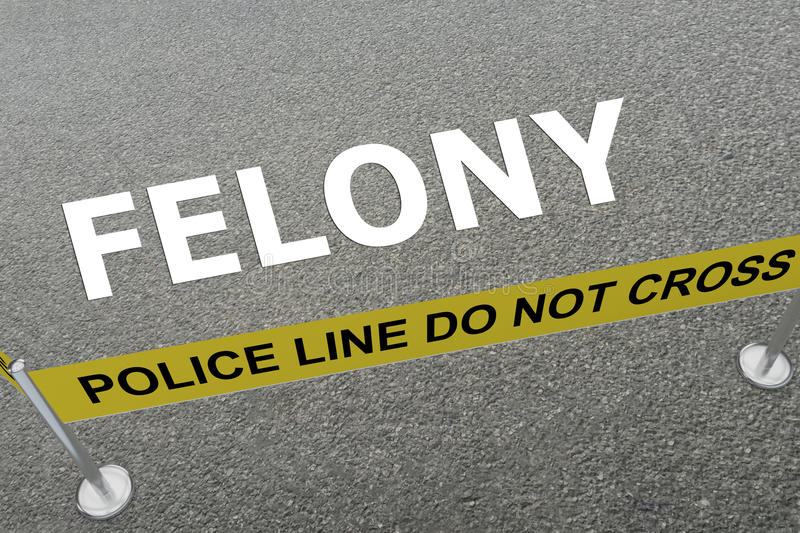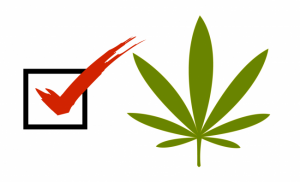Classifications of Felonies in North Carolina
Tuesday, April 25th, 2023
In North Carolina, felonies are classified into ten different categories or classes, each with its own range of penalties and sentencing guidelines. The classes of felonies in North Carolina are:
Class A Felonies: These are the most serious type of felony in North Carolina and include crimes such as first-degree murder, first-degree burglary, and certain drug trafficking offenses. Class A felonies are punishable by life imprisonment or the death penalty.
Class B1 Felonies: These include offenses such as rape, kidnapping, and some drug trafficking offenses. Class B1 felonies carry a potential sentence of 144 months to life imprisonment.
Class B2 Felonies: This category includes crimes such as voluntary manslaughter, second-degree murder, and some drug trafficking offenses. The potential sentence for a Class B2 felony is between 94 and 393 months in prison.
Class C Felonies: These include offenses such as assault with a deadly weapon, burglary, and embezzlement of property worth more than $100,000. Class C felonies carry a potential sentence of between 44 and 182 months in prison.
Class D Felonies: This category includes crimes such as possession of stolen goods, forgery, and embezzlement of property worth between $1,000 and $100,000. The potential sentence for a Class D felony is between 38 and 160 months in prison.
Class E Felonies: These include offenses such as larceny of property worth between $1,000 and $10,000, and possession with intent to sell or deliver a controlled substance. Class E felonies carry a potential sentence of between 15 and 63 months in prison.
Class F Felonies: This category includes crimes such as identity theft, larceny of property worth between $500 and $1,000, and possession of a stolen firearm. The potential sentence for a Class F felony is between 10 and 41 months in prison.
Class G Felonies: These include offenses such as breaking and entering into a motor vehicle, larceny of property worth less than $500, and possession of stolen property. Class G felonies carry a potential sentence of between 8 and 31 months in prison.
Class H Felonies: This category includes crimes such as simple assault, possession of a firearm by a felon, and certain drug offenses. The potential sentence for a Class H felony is between 4 and 25 months in prison.
Class I Felonies: These include offenses such as possession of marijuana or cocaine in excess of 1.5 ounces but less than 10 pounds, and carrying a concealed weapon. Class I felonies carry a potential sentence of up to 24 months in prison.
It’s important to note that the potential sentence for a given felony offense can vary based on factors such as the defendant’s criminal history and the circumstances surrounding the crime. Additionally, judges in North Carolina have discretion to depart from the statutory sentencing guidelines in certain cases.
Should you or someone you know get charged with a felony, a misdemeanor, or a traffic ticket in Southeastern North Carolina, in New Hanover (Wilmington), Pender (Burgaw), or Brunswick (Bolivia) Counties, call Collins Law Firm at 910-793-9000 for a confidential consultation about what we can do to help you.
By Bryanna Gordon, Legal Assistant



 The medical marijuana movement – a new provision! As found in Congress’ new 1,603-page spending plan, federal agents are now banned from policing medical marijuana users and raiding dispensaries in any state where medical marijuana is legal. Though the media has been hesitant to broadcast this news, you can be assured that this will change the way America sees and treats medical marijuana – and ultimately signals a big shift in drug policy. After two decades of tension and controversy between Washington and the states regarding medical marijuana, the passage of this bill marks a victory for so many. The origin of the movement towards federal legalization of medical marijuana can be linked to the many organizations advocating for federally legalized marijuana such as the Americans for Safe Access, the National Organization for the Reform of Marijuana Laws, and the Marijuana Policy Project. The Drug Enforcement Administration (DEA) however is not so thrilled, still arguing that marijuana is in the category of most dangerous narcotics, with no exception to medical use. The legalization of medical marijuana began in the 1990’s and now 23 states and the District of Columbia have legalized it.
The medical marijuana movement – a new provision! As found in Congress’ new 1,603-page spending plan, federal agents are now banned from policing medical marijuana users and raiding dispensaries in any state where medical marijuana is legal. Though the media has been hesitant to broadcast this news, you can be assured that this will change the way America sees and treats medical marijuana – and ultimately signals a big shift in drug policy. After two decades of tension and controversy between Washington and the states regarding medical marijuana, the passage of this bill marks a victory for so many. The origin of the movement towards federal legalization of medical marijuana can be linked to the many organizations advocating for federally legalized marijuana such as the Americans for Safe Access, the National Organization for the Reform of Marijuana Laws, and the Marijuana Policy Project. The Drug Enforcement Administration (DEA) however is not so thrilled, still arguing that marijuana is in the category of most dangerous narcotics, with no exception to medical use. The legalization of medical marijuana began in the 1990’s and now 23 states and the District of Columbia have legalized it. The U.S. prison population is six to ten times as high as in most Western European nations and many say that this is because of the Unites States War on Drugs. More than 749,000 people were arrested in the United States for marijuana-related offenses alone in the year 2012.
The U.S. prison population is six to ten times as high as in most Western European nations and many say that this is because of the Unites States War on Drugs. More than 749,000 people were arrested in the United States for marijuana-related offenses alone in the year 2012. The New York Times recently published a story entitled “Driving Under the Influence, of Marijuana.” The story suggested that driving under the influence of marijuana (pot) is much less risky than driving while impaired by alcohol. The report also indicated that it is difficult to detect impairment by pot with the standardized field sobriety tests used in DWI by alcohol cases, and it is difficult to confirm impairment with laboratory tests. The article discusses several studies making these findings and noted the conclusion of some experts that public resources would be better spent combating alcohol-impaired driving, including perhaps lowering the per se threshold for alcohol concentrations to 0.05, than in establishing a per se limit for blood-THC content or devising roadside tests to detect for marijuana impairment.
The New York Times recently published a story entitled “Driving Under the Influence, of Marijuana.” The story suggested that driving under the influence of marijuana (pot) is much less risky than driving while impaired by alcohol. The report also indicated that it is difficult to detect impairment by pot with the standardized field sobriety tests used in DWI by alcohol cases, and it is difficult to confirm impairment with laboratory tests. The article discusses several studies making these findings and noted the conclusion of some experts that public resources would be better spent combating alcohol-impaired driving, including perhaps lowering the per se threshold for alcohol concentrations to 0.05, than in establishing a per se limit for blood-THC content or devising roadside tests to detect for marijuana impairment. On August 12, 2013, United States Attorney General Eric Holder announced to the American Bar Association’s House of Delegates in San Francisco, an initiative to curb mandatory minimum drug sentences that the nation is “coldly efficient in jailing criminals,” but it “cannot prosecute or incarcerate” into becoming a safer country. “Too many Americans go to too many prisons for far too long, and for no truly good law enforcement reason,” Holder said . The arguments about legalization of drugs in the US include health and social problems, potential tax revenue, and public safety concerns. However, this speech by our Attorney General focused on alleviating an overburdened prison system housing non-violent people convicted and sentenced to very long prison terms for peaceful drug crimes. Regarding the debate over legalization, the nation has moved from the question of “if” to the more tangible question of “how,” said Beau Kilmer, co-director of the RAND Drug Policy Research Center and co-author of “Marijuana Legalization: What Everyone Needs to Know.”
On August 12, 2013, United States Attorney General Eric Holder announced to the American Bar Association’s House of Delegates in San Francisco, an initiative to curb mandatory minimum drug sentences that the nation is “coldly efficient in jailing criminals,” but it “cannot prosecute or incarcerate” into becoming a safer country. “Too many Americans go to too many prisons for far too long, and for no truly good law enforcement reason,” Holder said . The arguments about legalization of drugs in the US include health and social problems, potential tax revenue, and public safety concerns. However, this speech by our Attorney General focused on alleviating an overburdened prison system housing non-violent people convicted and sentenced to very long prison terms for peaceful drug crimes. Regarding the debate over legalization, the nation has moved from the question of “if” to the more tangible question of “how,” said Beau Kilmer, co-director of the RAND Drug Policy Research Center and co-author of “Marijuana Legalization: What Everyone Needs to Know.”
 This upcoming weekend is Memorial Day Weekend. While Memorial Day is a day to remember and honor those who lost their lives while serving our country in the United States Armed Forces, many take this longer weekend as an opportunity to travel.
This upcoming weekend is Memorial Day Weekend. While Memorial Day is a day to remember and honor those who lost their lives while serving our country in the United States Armed Forces, many take this longer weekend as an opportunity to travel. For students, the summer is over and school is starting again. Many students will be starting college for the first time and it will be in a new environment with many challenges and temptations.
For students, the summer is over and school is starting again. Many students will be starting college for the first time and it will be in a new environment with many challenges and temptations.